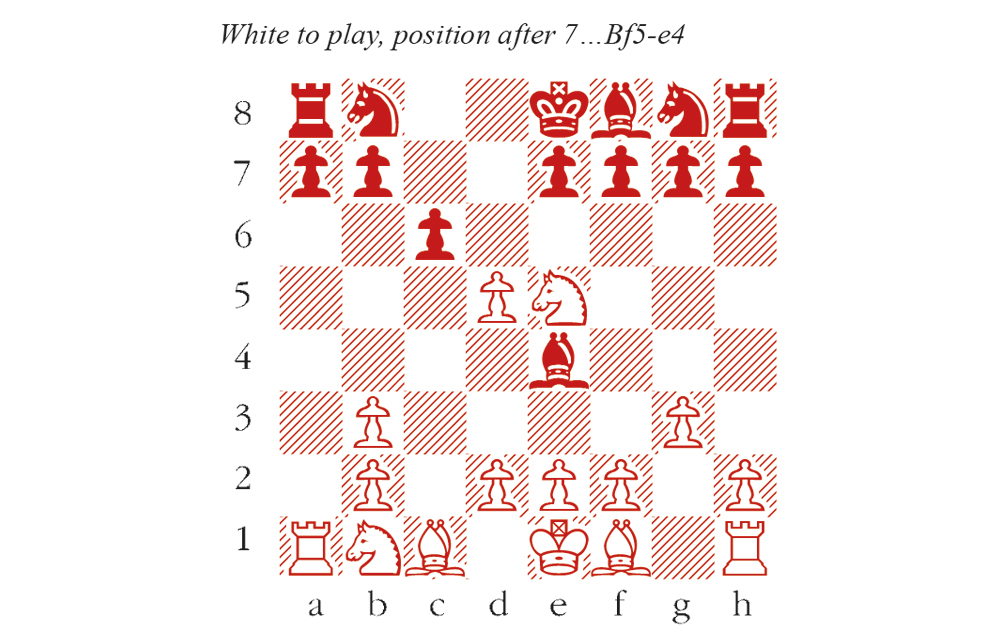I have a pet theory, based not on hard data but on insights from postmortem chitchat. My theory says that novices and experts, when facing evenly matched opponents, make roughly the same number of screw-ups in a game. The difference is that the novice’s oversights will be far more significant. The novice walks into checkmate, where the grandmaster hangs a pawn. One blunders a bishop, where the other concedes a softening of the pawn structure.
Strong players rely on their well-honed sense of danger to avoid the most egregious errors. After studying hundreds of thousands of tactical motifs, one just knows when a situation looks sketchy – perhaps there are a couple of undefended pieces, and the king is open to attack. Sometimes you have to work with that, but then the mental gears work hard to make sure the house of cards won’t collapse. The worst case scenario is always covered.
The second guardian angel is a (measured) respect for the opponent. When a fellow grandmaster leaves a piece hanging, it’s a Trojan horse until proven otherwise.
And yet the odd howler still slips through. In the first diagram, from a game at last week’s CrunchLabs Masters, Alireza Firouzja has just played 7…Bf5-e4, His idea was to attack the Rh1 before recapturing on d5 with the bishop. That was a mistake, but an understandable one for a rapid game. It was his next move that was the real shocker, when a moment of tactical blindness coincided with extreme naivety.
Fabiano Caruana-Alireza Firouzja
Champions Chess Tour CrunchLabs Masters 2024
1 c4 c6 2 Nf3 d5 3 g3 Bg4 4 Ne5 Bf5 5 Qb3 Qb6 6 cxd5 Qxb3 7 axb3 Be4 (see diagram) Caruana pondered for 30 seconds before playing the strongest move, which also proffers a Trojan horse (or rather, a rook): 8 dxc6! Firouzja spent a couple of minutes in contemplation, before accepting it. 8…Bxh1?? An inexplicable error. Firouzja surely examined 9 cxb7 Bxb7, or 9 c7 Nc6 (which covers the c8 square), but the key idea escaped his attention. 9 Rxa7! Black resigns, since after 9…Rxa7 10 c7 the promotion can no longer be stopped. Black would actually be better off without the knight on b8! Alternatively, 9…Nxc6 10 Rxa8+ Nd8 11 Rxd8+ Kxd8 12 Nxf7+ leaves White far ahead in material. Firouzja was left shaking his head, while Caruana could not resist a smile. The longtime world no. 2 is not known for blundering rooks in the opening.
It’s curious to note that this exact position (after 8 dxc6) was reached in a grandmaster game last year. In the game Abasov-Brunello, from the European Championship in Serbia, the Italian grandmaster Brunello made the same initial error with 7…Be4, but after 8 dxc6 he smelt a rat and chose 8…Nxc6, limiting the damage to a single pawn.
The motif is beautiful, but not unprecedented. The American grandmaster Robert Hess, commentating live online, anticipated the whole sequence before Firouzja had even played 7…Be4. There are many others, including the one below from 1911.
Carl Schlechter-Julius Perlis
Karlsbad International Masters 1911
1 d4 d5 2 c4 c6 3 Nf3 Bf5 4 Qb3 Qb6 5 cxd5 Qxb3 6 axb3 Bxb1 7 dxc6! 7…Be4 8 Rxa7! wins just as before, or 7…Bf5 8 cxb7! Perlis accepted the loss of a pawn instead. Nxc6 8 Rxb1 Black resigns at move 45.






Comments